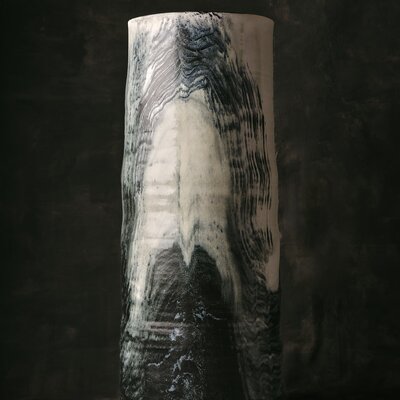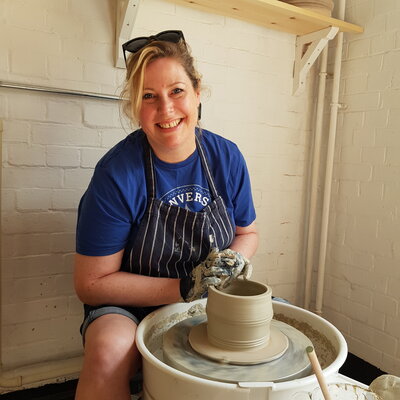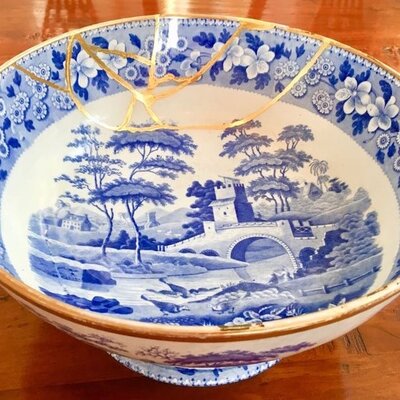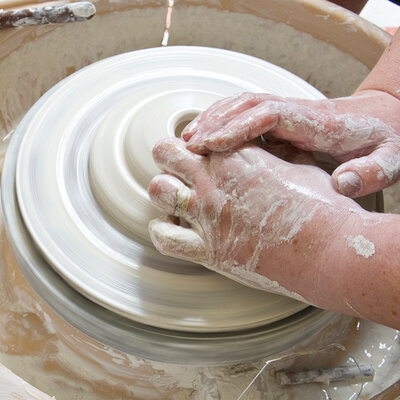Bowls come in so many shapes and sizes, and although simple structures, they are deceptively complex to make. The subtle relationships between rims and feet, edges and form determine the nature of each piece, breathing personality into every bowl.
This course is suitable for anyone who already has existing throwing skills and wants to be able to make work that is more personal, refined and resolved. Making progress relies on the capacity to explore the unknown to increase potential, critically and thoughtfully. You will be able to do this in a supported environment where issues involved with the creation of bowls are examined in depth. You will also study and explore the interaction between all the processes involved in the throwing, trimming and turning of bowls, discovering the interdependent nature of these techniques.
This course aims to help you develop a range of individually thrown ceramic bowls, exploring different forms and finishes, and to increase your understanding and appreciation of this iconic ceramic form.
You will be able to develop your range of throwing skills, with particular reference to bowl forms, and to develop your range of turning, trimming and finishing skills, with special attention to exploring feet and bases.
You will develop processes and techniques to help you identify the personal characteristics you want to articulate in your ceramic work.
You will develop a critical approach to the analysis of ceramic form, surface and style through the in-depth study of bowls.
By the end of the five days, you will have developed confidence in the making of a wide range of decisions that enable you to create a range of experimental bowl forms, a selection of fired samples and a group of finished pieces, which can be taken home or fired at the College.
This course will encourage you to refresh your creative output and inspire new work over the coming winter months. It is suitable for intermediate and advanced artists and makers.
Included
On this course, the College will supply all of the basic ceramic materials, including a choice of earthenware and stoneware clay, and the cost of firing and glazing a small selection of work made – large work in size and quantity may be charged extra.
Basic tools are provided for use in the studio.
What students need to bring
- An apron, old towel and plastic box with lid for keeping work
- Personal pottery toolkit
- Small sketchbook notebook with 2B pencil, rubber and pen
- A favourite bowl that you have made
If you collect ceramics, please also bring a bowl made by a potter that you care about.
Begin to make a visual collection of bowl-related imagery; this can be in the form of a sketchbook, Pinterest, portfolio of images, etc.
Available to buy
Available from shop:
Pottery tools, sponges, ribs, turning tools
A good selection of all art materials
Additional information
Firing and glazing options:
-
Leave any raw, finished pieces that you wish to keep for biscuit firing, basic glazing and re-firing by the College for collection within six months.
-
Leave raw, finished pieces for biscuit firing at the College. You can then book a place on a Glazing Day and glaze your own work (allowing 4 weeks for your work to be biscuit fired). This work will be re-fired after glazing and available for collection within six months.
-
Please take away your unfired pots for firing and glazing elsewhere.
Please wear appropriate clothing/aprons for the workshop or studio. This includes stout covered footwear, i.e. no open-toes or sandals, and safety boots, if specified.
Arrival day
Residential students can arrive from 4pm, non-residential students to arrive by 7.15pm for registration. Students arriving earlier are welcome to purchase dinner in the College Dining Room from 6pm.
Students meet their tutor in the Bar at 7.30pm prompt to go to studios.
First Teaching session: 7.30pm - 9pm (attendance is essential)
Daily timetable
Course teaching: 9.15am - 5pm
Morning session: 9.15am - 12.45pm including coffee/tea break
Lunch break: 12.45pm - 2pm*
Afternoon session: 2pm - 5pm including coffee/tea break
Teaching finishes: 5pm
Evening working: students may have access to workshops until 9pm, but only with permission from the tutor and provided any health and safety guidelines are observed.
Departure day
Course teaching: 9.15am - 3pm
Teaching finishes: 3pm
Residential students will need to check out of rooms by 10am.
Please note, the tutor may make slight variations to the daily timetable as required.
*Lunch can be purchased on campus, view options





